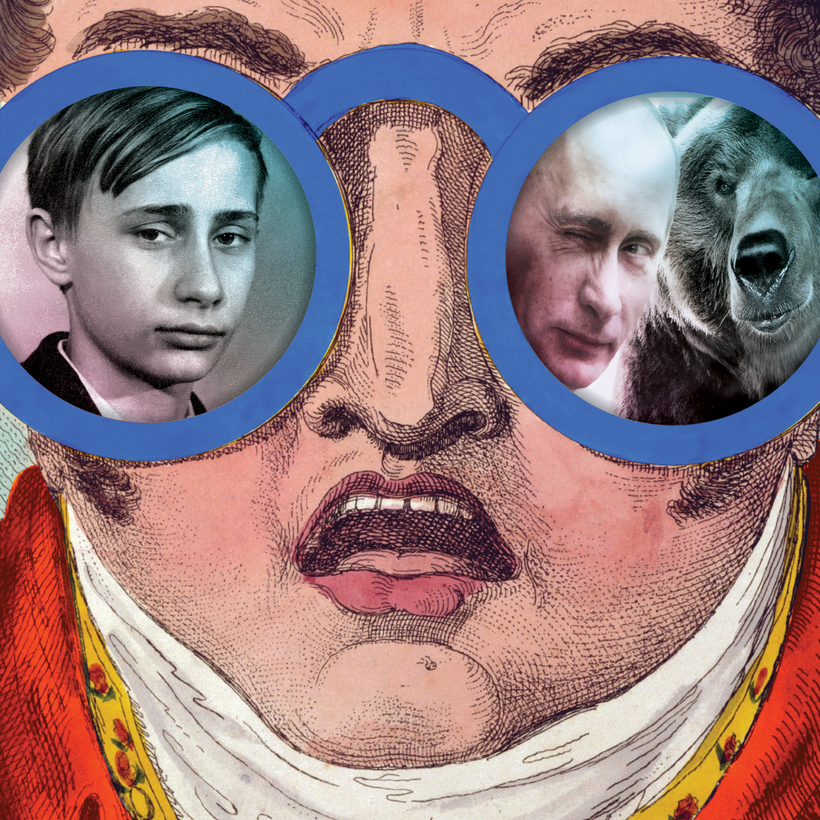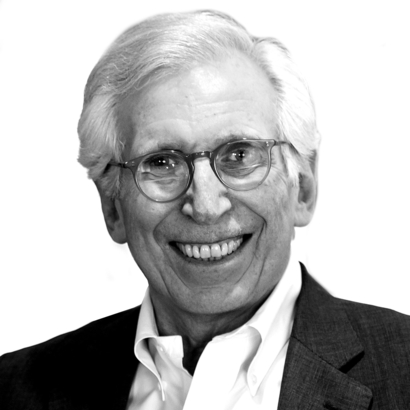Sitting in the Barrymore Theatre watching Peter Morgan’s play Patriots, about the tortuous relations between Vladimir Putin, the dictator, and Boris Berezovsky, the oligarch, who claimed to have raised Putin from obscurity to power, I had the slightly self-satisfied sense that I was probably the only person there that night who had broken bread with both men.
On Putin’s first trip to the U.S., in 2000, Tom Brokaw hosted a journalists’ dinner at the ‘21’ Club, and I was invited. Berezovsky was still making the New York scene, and I had lunch with him in real-estate tycoon Mort Zuckerman’s dining room on Park Avenue about the same time.
I had expected the evening to be a Russified version of the duel in Frost/Nixon, Morgan’s play about the former president and his interviews with the British television interviewer David Frost, or The Audience, about Queen Elizabeth II’s weekly sessions with nine British prime ministers. Instead, this was an intense portrayal of how two men collided, with Putin amassing unrestrained power and Berezovsky found hanging at his country estate in Ascot a decade ago.
As a former Moscow correspondent for The Washington Post, I consider myself something of a Russia hand, which is why at the closing bows I recognized that the intense and essentially satirical drama posed a number of questions that left me baffled.
As Winston Churchill remarked in 1939, Russia is “a riddle wrapped in a mystery inside an enigma; but perhaps there is a key. That key is Russian national interest.”
Question one: Was Putin just a K.G.B. cipher defeated for re-election as a deputy mayor in St. Petersburg when Berezovsky, a shrewd, dynamic former mathematician and surging post-Soviet businessman, lifted him from obscurity to the pinnacle of power?
Who was deceiving whom?
Even before the New York dinner, Valentin Yumashev, an adviser to Boris Yeltsin as president and then to Putin, had asked me on a visit to Moscow how Putin could introduce himself to the West. I said that he should sit for open-ended interviews with three leading Russian journalists, and we would turn the results into a book that I would publish at PublicAffairs.
This was an intense portrayal of how two men collided, with Putin amassing unrestrained power and Berezovsky found hanging at his country estate in Ascot a decade ago.
It was called First Person: An Astonishingly Frank Self-Portrait by Russia’s President. Putin provided us with a cache of personal photographs of himself, snuggling with the family dog, holding his firstborn with a goofy smile. Young Vladimir with his very ordinary-looking Russian parents. He was married to a former stewardess. His nickname was “Vovka.”
Putin’s political comments included hints about his grievances over Western disrespect toward Russia as a diminished superpower—but the overall sense was of a fellow who was accessible and reasonable.

Question two: Did “the Family”—Boris Yeltsin, his daughter Tatyana, and the clique of oligarchs—broker an end to Yeltsin’s presidency and foist Putin on the Russian nation? Did the Family get a pledge from Putin that he would not prosecute Yeltsin and the others for corruption? All we know is that he never did.
Working on Yeltsin’s memoir, Midnight Diaries, I spent a relaxed afternoon at the former president’s comfortable dacha shortly after his resignation, with his grandchildren’s snowshoes in the front hall. He seemed robust and said he had chosen Putin as his successor because, of all the contenders, he was the only one who was not a sycophant.
Yeltsin said he knew Russia was a mess and needed a leader with a measure of fierce tenacity. I was told that he later came to understand that he had misjudged Putin’s malign intentions.
As for Tatyana, when she and Yumashev (whom she later married) came to New York to work on the memoir, they stayed at a small East Side hotel; took cabs, even to the airport; and joined us for dinner at a local Vietnamese restaurant. If there were stolen billions, they never were on display as profligacy. Yeltsin died in 2007.
Question three: What made Putin into the autocrat who invaded Ukraine and has amassed billions for himself? Was this transformation inevitable?
There is no doubt that Putin considered Ukraine an inextricable part of Mother Russia and was infuriated that NATO troops were stationed in countries on or near Russia’s border. But would he, could he, have turned out another way?
At the New York dinner, my only close-up session with Putin, he was sarcastic but clear. He said that the recent sinking of the Russian submarine Kursk, which killed all the sailors aboard, was a result of the crew’s incompetence and not a national tragedy.
Of Berezovsky, he said, “He doesn’t pay taxes to us, and he doesn’t pay taxes to Israel.” He was not smiling.
I don’t think anyone really knows Putin’s interior sense of himself or his view of the world, beyond his desire to reclaim Russia’s eminence. We do know that in the past year, the thug Yevgeny Prigozhin was blown out of the sky after a failed mutiny and that the opposition leader Alexei Navalny died suddenly in a Siberian prison. Was Berezovsky a suicide? All the Yeltsin-era oligarchs were defenestrated one way or another.
Patriots is an interpretation of history like the play Oslo, about Israeli-Palestinian negotiations in the Norwegian capital, or Bryan Cranston’s ingenious portrait of Lyndon Johnson in the play All the Way.
My conclusion to the enigma question is that, yes, you can take the Communists out of Russia. But you can’t take the Russians out of Russia. And Putin, Berezovsky, Yeltsin, et al. are definitely Russian.
Peter Osnos is a journalist and the founder of PublicAffairs. He is the author of several books, including An Especially Good View: Watching History Happen, and he writes a Substack column called Peter Osnos Platform


